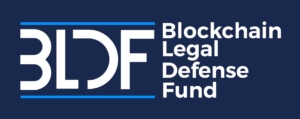Privacy Coins and the Legal Challenges Ahead in 2024
Privacy coins like Monero, Zcash, and Dash have become increasingly popular among cryptocurrency users who value anonymity and privacy. However, these coins have also drawn the attention of regulators concerned about their potential use in illegal activities. In 2024, legal challenges surrounding privacy coins are intensifying, with governments and regulatory bodies worldwide seeking to crack down on their use.
The Appeal of Privacy Coins
Privacy coins use advanced cryptographic techniques to enhance user anonymity and make transaction details difficult to trace. For instance, Monero employs ring signatures and stealth addresses to conceal the identities of senders and recipients, while Zcash offers the option of “shielded” transactions that encrypt all transactional data. These features make privacy coins attractive to users who wish to keep their financial activities private and protect themselves from surveillance.
Regulatory Concerns and Actions
The anonymity provided by privacy coins, however, has raised significant concerns among regulators and law enforcement agencies. Privacy coins have been linked to illegal activities such as money laundering, drug trafficking, and tax evasion, prompting a regulatory backlash. In 2024, several countries have taken steps to ban or restrict the use of privacy coins.
For example, Japan and South Korea have prohibited the listing of privacy coins on cryptocurrency exchanges, citing anti-money laundering (AML) concerns. The Financial Action Task Force (FATF) has also recommended that countries adopt stricter AML and counter-terrorist financing (CTF) measures for transactions involving privacy coins.
Legal Developments and Court Cases
The regulatory crackdown on privacy coins has led to several high-profile legal cases in 2024. In the United States, the Department of Justice (DOJ) has launched investigations into cryptocurrency exchanges that facilitate trading in privacy coins, accusing them of aiding and abetting money laundering. The DOJ has also pursued legal action against developers of privacy coins, arguing that their technology enables criminal activity.
One notable case involves the U.S. government’s attempt to shut down a privacy coin mixer, a service that obscures the origin of cryptocurrency transactions. The DOJ alleges that the mixer was used to launder proceeds from cybercrimes and has filed charges against its operators. This case could set a precedent for future legal actions against privacy-enhancing technologies.
Implications for Users and Developers
The increasing regulatory scrutiny of privacy coins has significant implications for both users and developers. For users, the legal risks associated with holding or transacting in privacy coins are growing, especially in jurisdictions with strict AML laws. Users may find it more challenging to access privacy coins as exchanges delist them to comply with regulations.
For developers, the legal environment is becoming increasingly hostile. Developers of privacy coins may face legal liabilities if their technology is used for illicit purposes, even if they do not actively facilitate criminal activity. This could deter innovation and push developers to focus on more compliant projects.
Privacy coins are at a crossroads in 2024, facing mounting legal challenges and regulatory scrutiny. While these coins offer valuable privacy features, their association with illegal activities has prompted a global crackdown. As governments and regulatory bodies seek to balance privacy with security, the future of privacy coins remains uncertain. Users and developers must stay informed about the evolving legal landscape and consider the risks involved in using and developing privacy-focused technologies.






Leave a Reply
Want to join the discussion?Feel free to contribute!